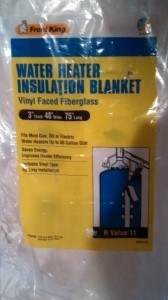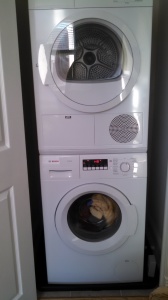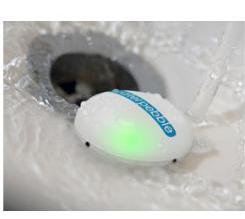Heating your hot water uses a lot of power. In fact, the DEP estimates that your hot water heater accounts for about 19% of your total energy use. We all love a hot shower – so how do we enjoy that shower AND save money on water, sewer and heating utility costs? There are some free and low cost measures we can take right now and then there are some longer term, more expensive ideas we can plan for in the longer term.
FREE RIGHT NOW
- Turn down the temperature on the tank. Not heating the water to a temp that has to be mixed with cold to be tolerable in the shower is a good place to start. The default setting is usually around 140 degrees Fahrenheit – the DEP recommends 120° F. Set it back, save money.
- Reduce demand for hot water by:
- Limit your time in the shower.
- Make it a game by timing your showers with an egg timer or a colored sensor like a Pebble
- Consider adopting a Navy or Australian shower – wet down, turn off the shower, soap up, turn on the shower to rinse.
- Check for and fix any faucet leaks.
LOW COST
- Insulate the hot water pipes to trap the heat for as long a length as you can reach.
 Insulate the hot water heater with a toasty blanket
Insulate the hot water heater with a toasty blanket- Install a timed or pull chain shut-off controller on the showerhead
- Install WaterSense showerheads and sink aerators to reduce overall water demand
- Install a timed recirculation pump on the hot water heater and have hot w
 ater waiting at the tap when you want it instead of running it till it gets hot.
ater waiting at the tap when you want it instead of running it till it gets hot.
PLANNING FOR THE FUTURE
- Change out your hot water tank to an on-demand unit
- Or change to an Energy Star heat pump tank
- Or install a solar thermal system.
- Trade in that old clothes washer for an hi-efficiency, Energy Star model and save electricity and water.
Have more ideas? Feel free to write in and share them. Drops saved quickly turn into gallons saved – those quickly turn into savings on water, sewer, natural gas and electricity.

